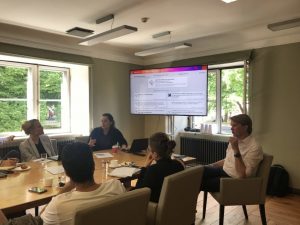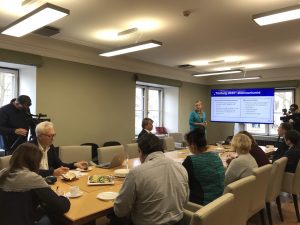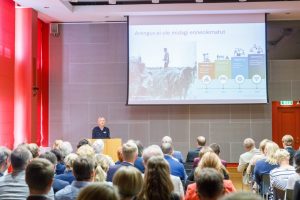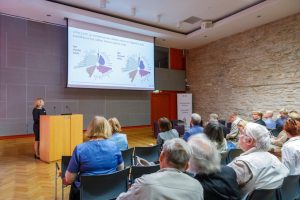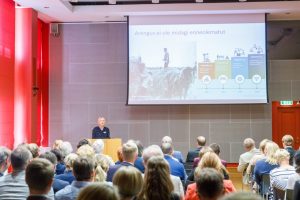As the Estonian pension system is increasingly under public scrutiny for suboptimal performance it is a good opportunity to discuss the Finnish system. The seminar will explore advantages and disadvantes of the Finnish pension system and whether the Finnish system offers any potential lessons for Estonia.
News
Increasing number of academic and policy books and articles are focusing on how to design and implement foresight in policy setting. However, foresight in policy-making also implies involvement of considerable number external stakeholders who have heterogeneous understanding of the role of strategic foresight. The heterogeneity goes beyond traditional debates among different schools of thought in strategic foresight concerning design and implementation.
The Foresight Centre is proposing four development scenarios of productivity, based on a relevant study. The scenarios take into account the global trends and their impact on Estonian businesses and economic indicators.
The Foresight Centre at the Estonian Parliament created five public sector governance scenarios for Estonia which paint different pictures of digitalization.
The study into the future of the labour market, conducted by the Foresight Centre, has been going on for nearly one and a half year, and is coming to a close. The final report of the project, “Labour Market 2035”, including four scenarios, has been completed.
Strategic foresight has gained considerable currency during the last decades, said Meelis Kitsing, Head of Research, Foresight Centre.
Working relationships have diversified and a number of new forms of work have emerged next to the classical ones. This makes the relationship increasingly difficult to define, and leaves a significant amount of workers without work related protection and social security guarantees.
The new study commissioned by the Foresight Centre shows that the Estonian businesses tailor their strategies mainly to the needs of the existing clients and not the expectations of the markets more broadly. At the same time, the development activities focus on improving the efficiency of the production, and not diversifying the portfolio of products and services. Investments into technology and research and development also remain in the background.
The study commissioned by the Foresight Centre shows that after the economic recession, the growth of production efficiency has slowed down in Estonia. It can be said that in comparison to the Nordic Countries, Estonia overinvests into equipment, and underinvests into human resources and research and development.
The study commissioned by the Foresight Centre shows that during the next couple of decades, the working age population will decrease, but as people are participating in the labour market more actively, the percentage of working people in comparison to that of dependants will remain the same or even grow.

 An independent think tank at the Riigikogu
An independent think tank at the Riigikogu 